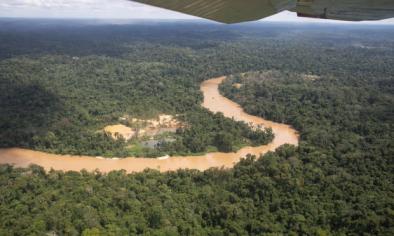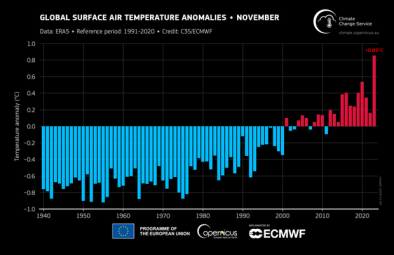UN Announces 5 Year Plan For Early Extreme Weather Warning System

The United Nations announced an ambitious plan to establish early warning networks in regions increasingly vulnerable to extreme weather fueled by climate change in five years. As the world's major polluters continue to fail to heed increasingly dire warnings of the need to slash greenhouse gas emissions, establishing and expanding early warning networks can lessen climate-fueled destruction — even a 24 hour warning can reduce damage from storms by about one-third. In wealthy nations, like the U.S. and Europe which together account for a majority of the planet's cumulative greenhouse gas pollution, extreme weather alert systems, though imperfect, save lives and lessen economic damage, blunting the impact of climate-fueled storms. A full third of the world's population, however, does not have early warning systems, a disparity heightened in small island states and Africa where 60% of people lack early warning coverage. “The early warning systems are vital in saving lives, but we must not stop at just preventing deaths,” Mohamed Adow, director of Power Shift Africa, a Nairobi-based think tank, said. “If people survive a climate disaster but then are left to fend for themselves with their homes and livelihoods destroyed, it’s a meager blessing. … The global community needs to ensure the victims of climate catastrophes are helped to thrive, not just survive.” The UN expects the plan will cost $1.5 billion, a number one senior UN official described to The Guardian as, "a mere rounding error of the $14 trillion mobilised by G20 countries over the last two years to recover their economies from Covid-19.”
(AP, Axios, The Guardian, Reuters, The Hill)
To receive climate stories like this in your inbox daily click here to sign up for the Hot News Newsletter from Climate Nexus:
Related Content






